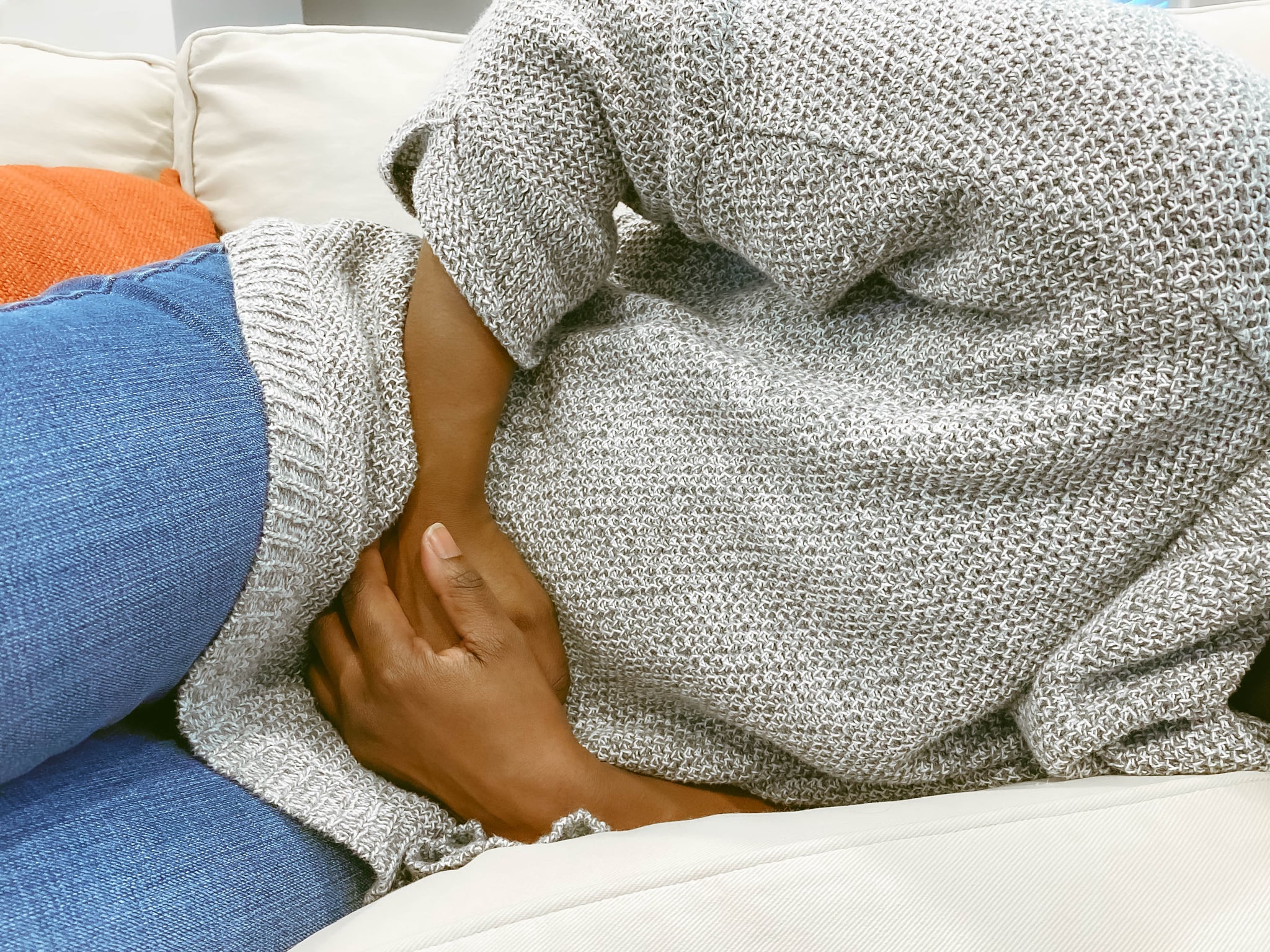
Battling through one heavy period, much less routinely heavy periods, absolutely sucks. They’re messy, uncomfortable, and can even have lasting consequences — including anemia, a condition in which there aren’t enough healthy red blood cells to sufficiently supply the body with oxygen. Much like your period flow, anemia can be mild, moderate, or severe. It can also occur after one significantly heavy period, or over time with persistently heavy cycles that slowly deplete your body of blood volume and iron. POPSUGAR spoke to Chimsom T. Oleka, MD, a board-certified pediatric and adolescent ob-gyn in Texas, to better understand the link between heavy periods and anemia.
Why Is My Period So Heavy?
The frequency of your periods can play a huge role in the heaviness of your flow, Dr. Oleka explained. If your cycle is longer than 35 days, without the use of hormones or birth control, the lining of your uterus may not be shedding appropriately. This can mean that the uterine lining becomes unusually thick, leading to a longer or heavier flow. “Those with heavy, irregular periods may notice their lining breaking off in pieces, which will prolong the menstrual period with a varying flow of intensities,” Dr. Oleka told POPSUGAR. Others may experience a super heavy flow, as the lining of the uterus sheds all at once.
Periods that occur more regularly — meaning, every 21 to 35 days — will typically last a week or less. A heavy flow under these circumstances could mean that the uterus isn’t shedding its old lining and generating a new one efficiently, or that the bleeding isn’t stopping at the level of the uterine lining. But there are a number of things that can affect your flow. While a little heavy bleeding here and there is OK, a persistently heavy flow is not. If you’re concerned, talk to your doctor.
How Do I Know If My Period Is Causing Me to Become Anemic?
The volume of blood lost during menstruation is more telling than the frequency or duration of your periods, Dr. Oleka explained. You may be at risk for anemia if you need to change your pad or tampon more than every two hours; lose more than 80mL of blood in your menstrual cup or disc; frequently soil your clothes or linens; need to use two layers of protection during your period; or pass blood clots greater than one inch in diameter. Heavy periods accompanied by fatigue, trouble concentrating, increased heart rate, decreased appetite, shortness of breath, or cravings for ice, dirt, or starch, could point to iron deficiency anemia.
Again, if you have reason to believe that you could be anemic, it’s important to talk to your ob-gyn. “Iron deficiency anemia isn’t something to self-diagnose,” Dr. Oleka cautioned. If self-treated, life-threatening issues or complications, such as liver or heart damage, can occur. To prepare for your appointment, she recommends making note of how many days you typically bleed during your period, the absorbency of the menstrual products you use and how frequently you have to change them on your heaviest days, and any soiling that’s happened recently.
